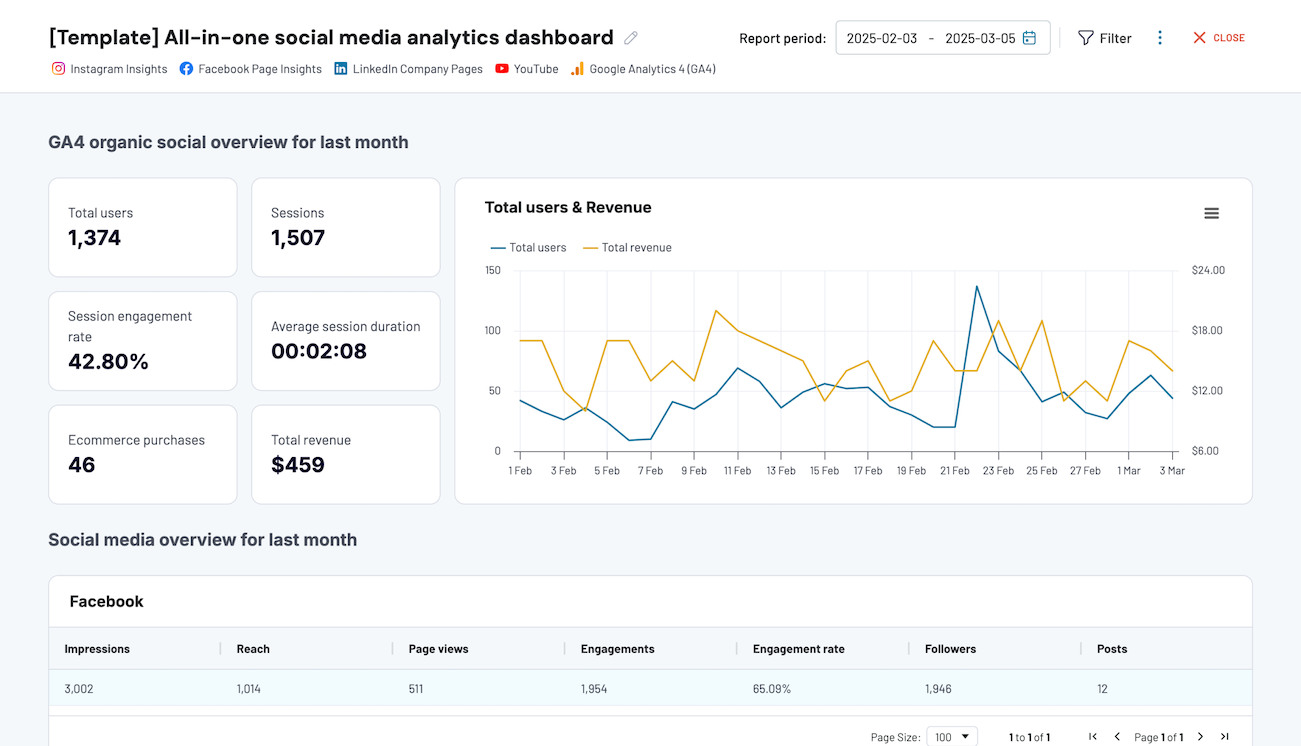
Shopify CRM & Analytics Suite: Complete Buyer's Guide
Ecommerce-native CRM solution
Shopify CRM & Analytics Suite is an integrated customer relationship management platform designed specifically for ecommerce operations, offering native data synchronization with existing Shopify infrastructure to create unified customer insights and sales optimization capabilities.
Market Position & Maturity
Market Standing
Shopify CRM & Analytics Suite occupies a unique market position as an ecommerce-native CRM solution, differentiating itself from general-purpose alternatives through specialized functionality while creating market limitations as businesses grow beyond pure ecommerce models[48][51].
Company Maturity
Company maturity indicators demonstrate strong operational foundations through Shopify's established market presence and financial performance.
Growth Trajectory
Growth trajectory aligns with broader ecommerce market expansion, with the platform positioned to benefit from continued digital commerce adoption.
Industry Recognition
Industry recognition stems primarily from Shopify's established reputation in ecommerce platform services rather than specific CRM industry awards or analyst recognition.
Strategic Partnerships
Strategic partnerships with marketing automation providers, analytics tools, and payment processors strengthen the platform's ecosystem positioning and technical capabilities.
Longevity Assessment
Longevity assessment indicates strong prospects for continued operation and development, supported by Shopify's established business model and market position.
Proof of Capabilities
Customer Evidence
Allbirds successfully deployed Shopify POS for omnichannel operations, achieving 40% reduction in manual errors through automated workflow synchronization[21].
Quantified Outcomes
Tidio Chat integration within Shopify's ecosystem reports 89% higher retargeting response rates compared to traditional email campaigns[51], while CreatorKit's AI-generated visual content shows 35% conversion improvements when deployed through Shopify's marketing automation features[51][53].
Case Study Analysis
Precision Parts Inc. achieved 28% lead time reductions using AI-driven inventory forecasting capabilities[43].
Market Validation
Market validation evidence includes successful implementations across company sizes, from SMBs completing deployments in 4-6 weeks using pre-built connectors[39] to mid-market retailers requiring 3-6 months with cross-functional teams[21][28].
Competitive Wins
Competitive performance shows mixed results against specialized alternatives. While the platform provides adequate predictive analytics for standard ecommerce scenarios, it lacks the advanced lead scoring sophistication found in Salesforce Einstein or the sentiment analysis depth available in Zoho CRM[47][50][55].
AI Technology
The AI-powered analytics engine processes transaction data, browsing patterns, and customer interactions to generate actionable recommendations for inventory management and marketing campaigns[47][54].
Architecture
Shopify CRM & Analytics Suite's technical foundation centers on native ecommerce integration architecture that eliminates traditional CRM implementation challenges through direct synchronization with order data, inventory systems, and customer interactions[49][51].
Primary Competitors
Primary competitors include Salesforce Einstein, HubSpot, Zoho CRM, and Microsoft Dynamics 365[47][50][51][55].
Competitive Advantages
Competitive advantages center on native ecommerce integration that eliminates traditional CRM implementation challenges[49][51].
Market Positioning
Market positioning occupies a unique niche as an ecommerce-native CRM solution, differentiating through specialized functionality while creating limitations in broader business contexts.
Win/Loss Scenarios
Win/loss scenarios favor Shopify when organizations prioritize native ecommerce integration, rapid implementation timelines, and real-time inventory optimization[48][51].
Key Features

Pros & Cons
Use Cases
Integrations
Pricing
Featured In Articles
Comprehensive analysis of CRM for Ecommerce for Ecommerce businesses and online retailers. Expert evaluation of features, pricing, and implementation.
How We Researched This Guide
About This Guide: This comprehensive analysis is based on extensive competitive intelligence and real-world implementation data from leading AI vendors. StayModern updates this guide quarterly to reflect market developments and vendor performance changes.
58+ verified sources per analysis including official documentation, customer reviews, analyst reports, and industry publications.
- • Vendor documentation & whitepapers
- • Customer testimonials & case studies
- • Third-party analyst assessments
- • Industry benchmarking reports
Standardized assessment framework across 8 key dimensions for objective comparison.
- • Technology capabilities & architecture
- • Market position & customer evidence
- • Implementation experience & support
- • Pricing value & competitive position
Research is refreshed every 90 days to capture market changes and new vendor capabilities.
- • New product releases & features
- • Market positioning changes
- • Customer feedback integration
- • Competitive landscape shifts
Every claim is source-linked with direct citations to original materials for verification.
- • Clickable citation links
- • Original source attribution
- • Date stamps for currency
- • Quality score validation
Analysis follows systematic research protocols with consistent evaluation frameworks.
- • Standardized assessment criteria
- • Multi-source verification process
- • Consistent evaluation methodology
- • Quality assurance protocols
Buyer-focused analysis with transparent methodology and factual accuracy commitment.
- • Objective comparative analysis
- • Transparent research methodology
- • Factual accuracy commitment
- • Continuous quality improvement
Quality Commitment: If you find any inaccuracies in our analysis on this page, please contact us at research@staymodern.ai. We're committed to maintaining the highest standards of research integrity and will investigate and correct any issues promptly.